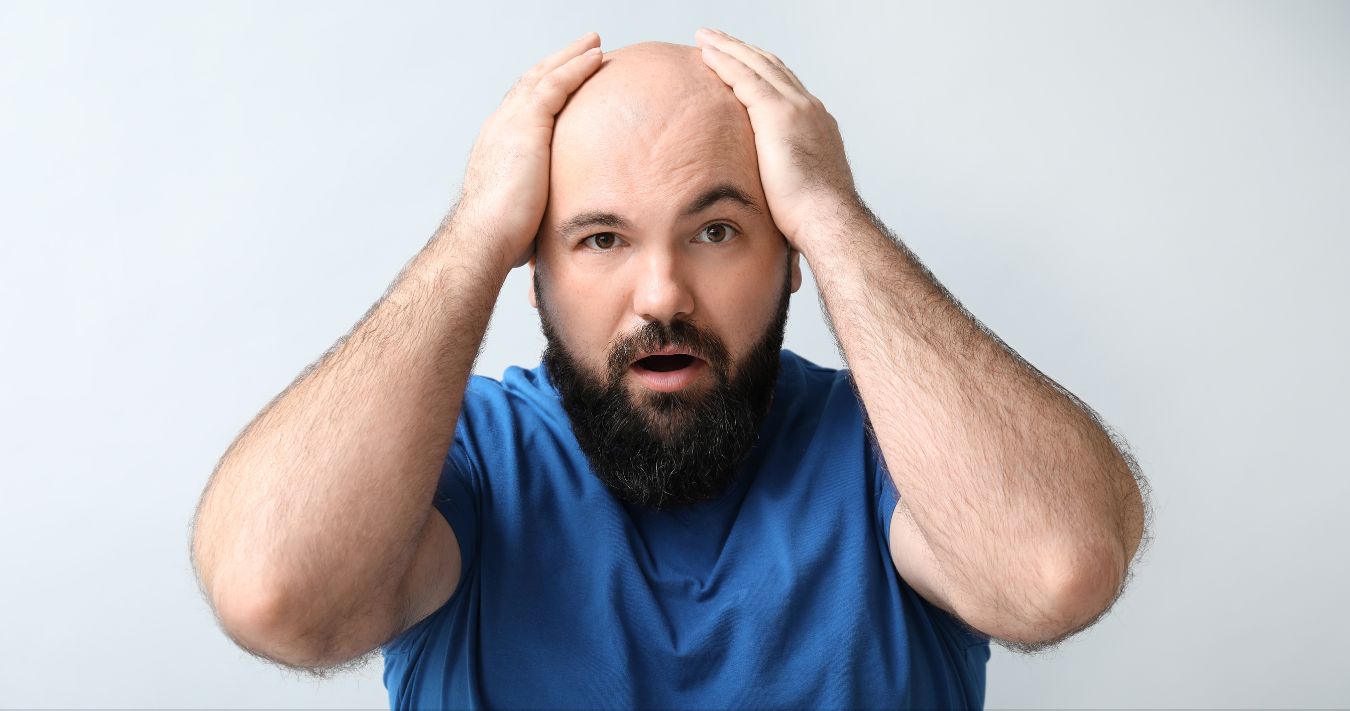Top Tips for Hair Loss
Hair loss is a common concern that affects both men and women. It’s often triggered by genetics, stress, hormonal imbalances or nutritional deficiencies. Dealing with hair loss can be challenging, but there are ways to mitigate its effects and promote healthy hair growth.
1. Vitamins for Hair Health
Several vitamins play an essential role in maintaining healthy hair and preventing hair loss. Here are the key vitamins to consider:
- Vitamin A: It helps in the production of sebum, an oily substance that keeps the scalp moisturized. A healthy scalp is essential for hair growth. However, too much vitamin A can lead to hair loss, so it’s crucial to stay within recommended limits. You can also get vitamin A from eating sweet potatoes, carrots, spinach and kale.
- Biotin (vitamin B7): Biotin is one of the most well-known vitamins for hair growth. It helps strengthen hair and improve its texture. A biotin deficiency can lead to thinning hair. Eggs, almonds, avocados and salmon are excellent sources of biotin.
- Vitamin C: This vitamin is a powerful antioxidant that helps combat oxidative stress, which can damage hair follicles. It also aids in the absorption of iron, a crucial mineral for hair health. Citrus fruits and peppers are a great source of vitamin C.
- Vitamin D: Low levels of vitamin D have been linked to alopecia (a condition that causes bald patches on the scalp). This vitamin is essential for creating new hair follicles. Exposure to sunlight is an easy way to get more vitamin D, or you can add fatty fish to your diet.
- Vitamin E: Like vitamin C, vitamin E helps protect the scalp from oxidative stress. It also improves blood circulation, promoting hair growth. Vitamin E can be found in sunflower seeds, almonds and spinach.
2. Supplements to Consider
In addition to vitamins, there are specific supplements that can help address hair loss:
- Zinc: Zinc plays a critical role in hair tissue growth and repair. It helps maintain the oil glands around the follicles, preventing hair loss. It’s available as a standalone supplement or combined with multivitamins.
- Iron: Iron deficiency, or anemia, is a common cause of hair loss, especially in women. Iron helps red blood cells carry oxygen to your cells, aiding in growth and repair. You can consider taking iron supplements if you are diagnosed with a deficiency.
- Collagen: Collagen is a protein that strengthens hair and improves its elasticity. Taking collagen supplements can promote hair growth and prevent breakage.
- Saw palmetto: This plant extract is often used in hair loss supplements for its potential ability to block DHT, a hormone linked to hair thinning and loss, particularly in men.
3. Medications to Talk to Your Doctor About
Several medications can help with hair loss. It’s essential to consult with a healthcare professional before starting any medication:
- Minoxidil (rogaine): This over-the-counter topical treatment is widely used for both men and women. It can help slow hair loss and, in some cases, promote hair regrowth. Results may take several months, and continuous use is typically necessary for ongoing benefits.
- Finasteride (propecia): This prescription medication is used to treat male pattern baldness by reducing DHT levels. Finasteride is not recommended for women. It’s essential to discuss potential side effects with your doctor.
- Spironolactone: Primarily used as a treatment for high blood pressure, this medication can also help reduce hair loss in women by lowering androgen levels (hormones that can contribute to hair thinning).
- Platelet-rich plasma (PRP): PRP therapy involves drawing a person’s blood, processing it to isolate the plasma and injecting it into the scalp. The platelets in the plasma may help stimulate hair growth in thinning areas.
4. Diet Tips for Hair Loss Prevention
Maintaining a balanced diet is crucial for hair health. Here are some dietary changes that can help combat hair loss:
- Protein-rich foods: Hair is made primarily of protein, so it’s vital to include enough of it in your diet. Lack of protein can cause hair to become weak and brittle. Eating lean meats, fish, eggs and legumes will help add more protein to your diet.
- Healthy fats: Omega-3 fatty acids are essential for hair growth and can reduce inflammation that contributes to hair loss. Eat more fatty fish (like salmon), flaxseeds and walnuts for extra healthy fats.
- Iron-rich foods: Iron is crucial for healthy hair, and a deficiency can cause significant hair loss. Red meat, spinach, lentils and fortified cereals are a great source of iron.
- Hydration: Drinking enough water is vital for keeping your scalp healthy. Dehydration can make hair brittle and prone to breakage.
5. Lifestyle Changes to Support Hair Growth
Along with diet and supplements, certain lifestyle changes can make a significant difference in managing hair loss:
- Reduce stress: Chronic stress can disrupt the hair growth cycle, leading to hair thinning. Stress-management techniques such as yoga, meditation or even regular exercise can be beneficial.
- Limit heat styling: Overuse of heat tools, like flat irons and blow dryers, can damage hair and make it more prone to falling out. If you must use heat, always apply a heat protectant first.
- Avoid harsh chemicals: Hair treatments like bleaching, perming or frequent coloring can weaken the hair shaft, leading to breakage and loss. Opt for gentler hair care products and avoid over-processing.
Always speak with your doctor about medications for hair loss, and how they may interact with your body. There are many natural treatments you can try. However, medical options may be necessary depending on your unique, individual situation.

